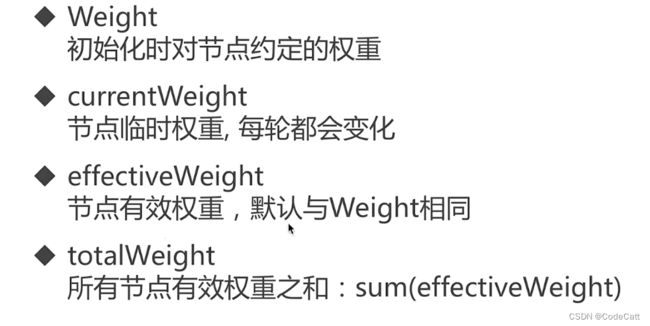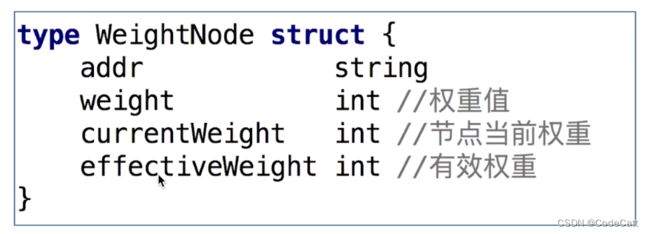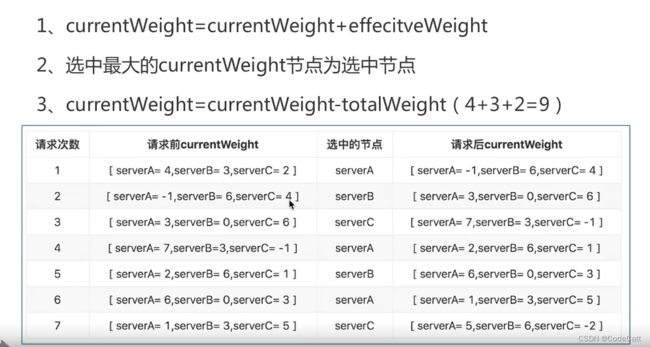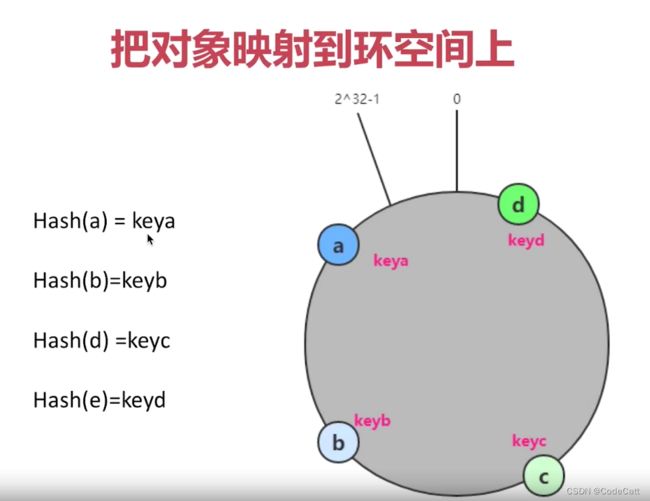go 语言 负载均衡 为反向代理添加负载均衡 拓展ReverseProxy
随机负载
package random
import (
"errors"
"math/rand"
)
type RandomBalance struct {
//当前索引
curIndex int
//存储负载均衡的地址
rss []string
//观察主体
//conf LoadBalanceConf
}
func (r *RandomBalance) Add(params ...string) error {
if len(params) == 0 {
return errors.New("param len 1 at least")
}
addr := params[0]
r.rss = append(r.rss, addr)
return nil
}
// Next 随机到下一个index
func (r *RandomBalance) Next() string {
if len(r.rss) == 0 {
return ""
}
r.curIndex = rand.Intn(len(r.rss))
return r.rss[r.curIndex]
}
// Get 拿到下一个地址
func (r *RandomBalance) Get(key string) (string, error) {
return r.Next(), nil
}
轮询负载
package round
import "errors"
type RoundRobinBalance struct {
curIndex int
rss []string
//观察主体
//conf LoadBalanceConf
}
func (r *RoundRobinBalance) Add(params ...string) error {
if len(params) == 0 {
return errors.New("param len 1 at least")
}
addr := params[0]
r.rss = append(r.rss, addr)
return nil
}
func (r *RoundRobinBalance) Next() string {
if len(r.rss) == 0 {
return ""
}
lens := len(r.rss)
if r.curIndex >= lens {
r.curIndex = 0
}
curAddr := r.rss[r.curIndex]
r.curIndex = (r.curIndex + 1) % lens
return curAddr
}
func (r *RoundRobinBalance) Get(key string) (string, error) {
return r.Next(), nil
}
加权负载
package weight
import (
"errors"
"strconv"
)
type WeightRoundRobinBalance struct {
curIndex int
rss []*WeightNode
rsw []int
//观察主体
//conf LoadBalanceConf
}
type WeightNode struct {
addr string
weight int //权重值
currentWeight int //节点当前权重
effectiveWeight int //有效权重
}
func (r *WeightRoundRobinBalance) Add(params ...string) error {
if len(params) != 2 {
return errors.New("param len need 2")
}
parInt, err := strconv.ParseInt(params[1], 10, 64)
if err != nil {
return err
}
node := &WeightNode{addr: params[0], weight: int(parInt)}
node.effectiveWeight = node.weight
r.rss = append(r.rss, node)
return nil
}
func (r *WeightRoundRobinBalance) Next() string {
total := 0
var best *WeightNode
for i := 0; i < len(r.rss); i++ {
w := r.rss[i]
//step 1 统计所以有效权重之和
total += w.effectiveWeight
//step 2 变更节点 临时权重
w.currentWeight += w.effectiveWeight
//step 3 有效权重默认与权重相同,通讯异常时-1, 通讯成功+1,直到恢复到weight大小
if w.effectiveWeight < w.weight {
w.effectiveWeight++
}
//step 4 选择最大临时权重点节点
if best == nil || w.currentWeight > best.currentWeight {
best = w
}
}
if best == nil {
return ""
}
//step 5 变更临时权重为 临时权重-有效权重之和
best.currentWeight -= total
return best.addr
}
func (r *WeightRoundRobinBalance) Get(key string) (string, error) {
return r.Next(), nil
}
加权轮询过程
一致性哈希负载
package consist_hash
import (
"errors"
"hash/crc32"
"sort"
"strconv"
"sync"
)
type Hash func(data []byte) uint32
type UInt32Slice []uint32
func (s UInt32Slice) Len() int {
return len(s)
}
func (s UInt32Slice) Less(i, j int) bool {
return s[i] < s[j]
}
func (s UInt32Slice) Swap(i, j int) {
s[i], s[j] = s[j], s[i]
}
type ConsistentHashBanlance struct {
mux sync.RWMutex
hash Hash
replicas int //复制因子
keys UInt32Slice //已排序的节点hash切片
hashMap map[uint32]string //节点哈希和Key的map,键是hash值,值是节点key
//观察主体
//conf LoadBalanceConf
}
func NewConsistentHashBanlance(replicas int, fn Hash) *ConsistentHashBanlance {
m := &ConsistentHashBanlance{
replicas: replicas,
hash: fn,
hashMap: make(map[uint32]string),
}
if m.hash == nil {
//最多32位,保证是一个2^32-1环
m.hash = crc32.ChecksumIEEE
}
return m
}
// 验证是否为空
func (c *ConsistentHashBanlance) IsEmpty() bool {
return len(c.keys) == 0
}
// Add 方法用来添加缓存节点,参数为节点key,比如使用IP
func (c *ConsistentHashBanlance) Add(params ...string) error {
if len(params) == 0 {
return errors.New("param len 1 at least")
}
addr := params[0]
c.mux.Lock()
defer c.mux.Unlock()
// 结合复制因子计算所有虚拟节点的hash值,并存入m.keys中,同时在m.hashMap中保存哈希值和key的映射
for i := 0; i < c.replicas; i++ {
hash := c.hash([]byte(strconv.Itoa(i) + addr))
c.keys = append(c.keys, hash)
c.hashMap[hash] = addr
}
// 对所有虚拟节点的哈希值进行排序,方便之后进行二分查找
sort.Sort(c.keys)
return nil
}
// Get 方法根据给定的对象获取最靠近它的那个节点
func (c *ConsistentHashBanlance) Get(key string) (string, error) {
if c.IsEmpty() {
return "", errors.New("node is empty")
}
hash := c.hash([]byte(key))
// 通过二分查找获取最优节点,第一个"服务器hash"值大于"数据hash"值的就是最优"服务器节点"
idx := sort.Search(len(c.keys), func(i int) bool { return c.keys[i] >= hash })
// 如果查找结果 大于 服务器节点哈希数组的最大索引,表示此时该对象哈希值位于最后一个节点之后,那么放入第一个节点中
if idx == len(c.keys) {
idx = 0
}
c.mux.RLock()
defer c.mux.RUnlock()
return c.hashMap[c.keys[idx]], nil
}
//func (c *ConsistentHashBanlance) SetConf(conf LoadBalanceConf) {
// c.conf = conf
//}
//
//func (c *ConsistentHashBanlance) Update() {
// if conf, ok := c.conf.(*LoadBalanceZkConf); ok {
// fmt.Println("Update get conf:", conf.GetConf())
// c.keys = nil
// c.hashMap = nil
// for _, ip := range conf.GetConf() {
// c.Add(strings.Split(ip, ",")...)
// }
// }
// if conf, ok := c.conf.(*LoadBalanceCheckConf); ok {
// fmt.Println("Update get conf:", conf.GetConf())
// c.keys = nil
// c.hashMap = map[uint32]string{}
// for _, ip := range conf.GetConf() {
// c.Add(strings.Split(ip, ",")...)
// }
// }
//}
请求访问指定的IP
为反向代理添加负载均衡
使用工厂方法
// LoadBalanceFactory 负载均衡的工厂模式
func LoadBalanceFactory(lbType LbType) LoadBalance {
switch lbType {
case LbRandom:
return &random.RandomBalance{}
case LbRoundRobin:
return &round.RoundRobinBalance{}
case LbWeightRoundRobin:
return &weight.WeightRoundRobinBalance{}
case LbConsistentHash:
return consist_hash.NewConsistentHashBanlance(10, nil)
default:
return &random.RandomBalance{}
}
}
使用接口统一封装
type LoadBalance interface {
Add(...string) error
Get(string) (string, error)
// Update 后期服务发现补充
//Update()
}
package main
import (
"bytes"
"gateway-detail/load_balance/lb_factory"
"io"
"log"
"net"
"net/http"
"net/http/httputil"
"net/url"
"strconv"
"strings"
"time"
)
var (
addr = "127.0.0.1:2224"
transport = &http.Transport{
DialContext: (&net.Dialer{
Timeout: 30 * time.Second, //连接超时
KeepAlive: 30 * time.Second, //长连接超时时间
}).DialContext,
MaxIdleConns: 100, //最大空闲连接
IdleConnTimeout: 90 * time.Second, //空闲超时时间
TLSHandshakeTimeout: 10 * time.Second, //tls握手超时时间
ExpectContinueTimeout: 1 * time.Second, //100-continue状态码超时时间
}
)
func NewMultipleHostsReverseProxy(lb lb_factory.LoadBalance) *httputil.ReverseProxy {
// 请求协调者
director := func(req *http.Request) {
nextAddr, err := lb.Get(req.RemoteAddr)
if err != nil {
log.Println(err.Error())
log.Fatal("get next addr fail")
}
target, err := url.Parse(nextAddr)
if err != nil {
log.Fatal(err)
}
//改造req
targetQuery := target.RawQuery
req.URL.Scheme = target.Scheme
req.URL.Host = target.Host
req.URL.Path = singleJoiningSlash(target.Path, req.URL.Path)
if targetQuery == "" || req.URL.RawQuery == "" {
req.URL.RawQuery = targetQuery + req.URL.RawQuery
} else {
req.URL.RawQuery = targetQuery + "&" + req.URL.RawQuery
}
if _, ok := req.Header["User-Agent"]; !ok {
req.Header.Set("User-Agent", "user-agent")
}
}
//更改内容
modifyFunc := func(resp *http.Response) error {
//请求以下命令:curl 'http://127.0.0.1:2002/error'
if resp.StatusCode != 200 {
//获取内容
}
//追加内容
oldPayload, err := io.ReadAll(resp.Body)
if err != nil {
return err
}
newPayload := []byte("Hello :" + string(oldPayload))
resp.Body = io.NopCloser(bytes.NewBuffer(newPayload))
resp.ContentLength = int64(len(newPayload))
resp.Header.Set("Content-Length", strconv.FormatInt(int64(len(newPayload)), 10))
return nil
}
//错误回调 :关闭real_server时测试,错误回调
//范围:transport.RoundTrip发生的错误、以及ModifyResponse发生的错误
errFunc := func(w http.ResponseWriter, r *http.Request, err error) {
//todo 如果是权重的负载则调整临时权重
http.Error(w, "ErrorHandler error:"+err.Error(), 500)
}
return &httputil.ReverseProxy{Director: director, Transport: transport, ModifyResponse: modifyFunc, ErrorHandler: errFunc}
}
func singleJoiningSlash(a, b string) string {
aslash := strings.HasSuffix(a, "/")
bslash := strings.HasPrefix(b, "/")
switch {
case aslash && bslash:
return a + b[1:]
case !aslash && !bslash:
return a + "/" + b
}
return a + b
}
func main() {
rb := lb_factory.LoadBalanceFactory(lb_factory.LbConsistentHash)
if err := rb.Add("http://127.0.0.1:2003/base", "10"); err != nil {
log.Println(err)
}
if err := rb.Add("http://127.0.0.1:2004/base", "50"); err != nil {
log.Println(err)
}
proxy := NewMultipleHostsReverseProxy(rb)
log.Println("Starting httpserver at " + addr)
log.Fatal(http.ListenAndServe(addr, proxy))
}




